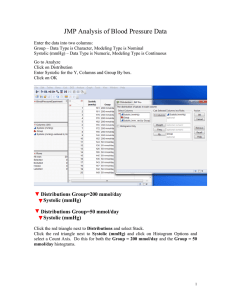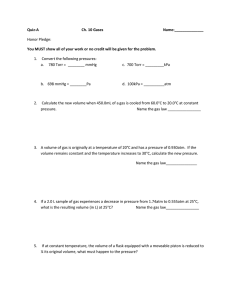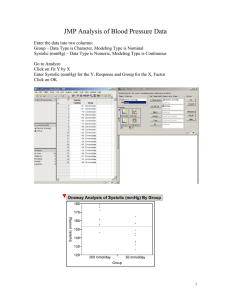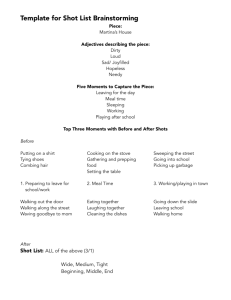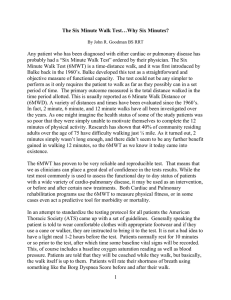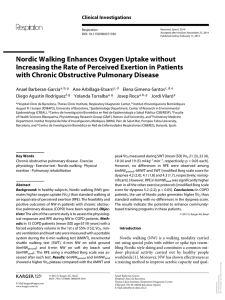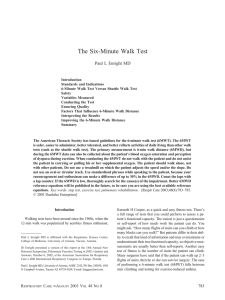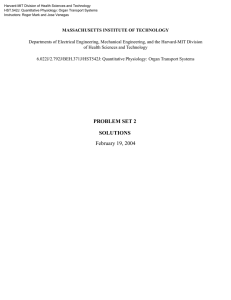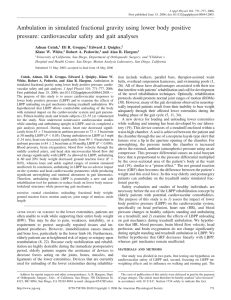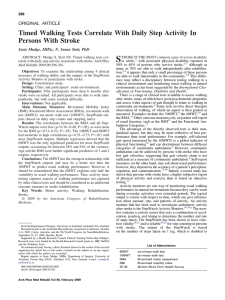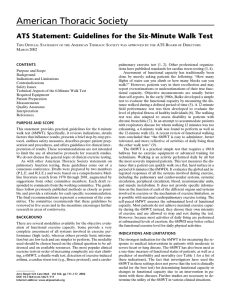053 McKinly Laboratory University of Delaware Newark, DE 19716-2590 Ph: (302) 831-8893
advertisement
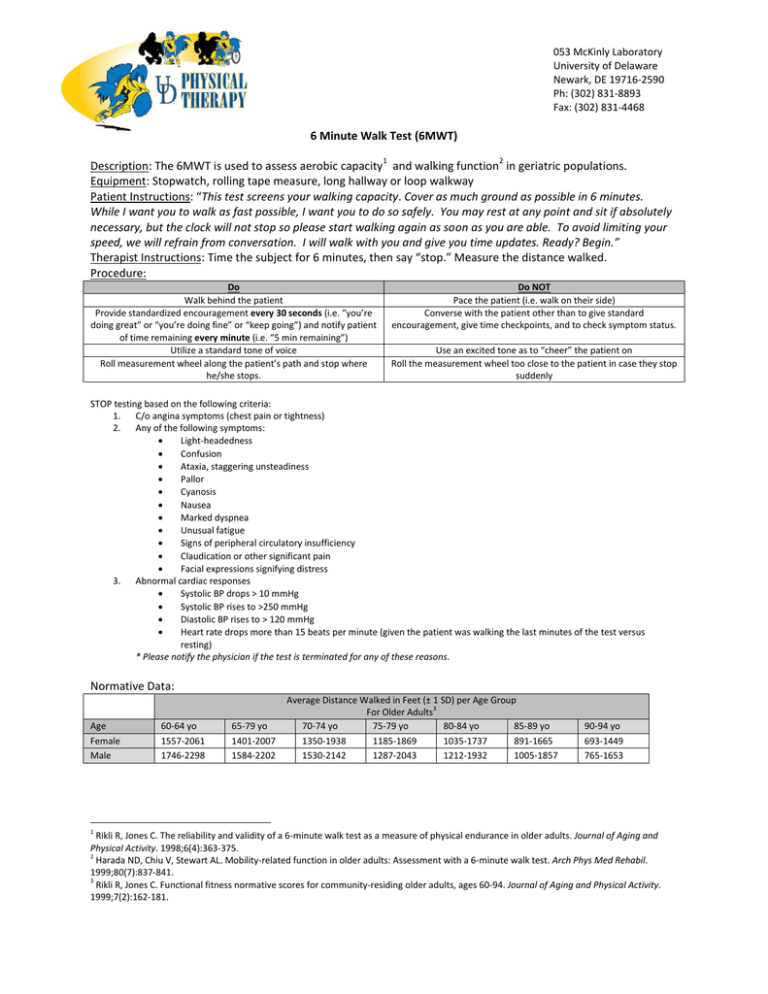
053 McKinly Laboratory University of Delaware Newark, DE 19716-2590 Ph: (302) 831-8893 Fax: (302) 831-4468 www.udel.edu/PT 6 Minute Walk Test (6MWT) 1 2 Description: The 6MWT is used to assess aerobic capacity and walking function in geriatric populations. Equipment: Stopwatch, rolling tape measure, long hallway or loop walkway Patient Instructions: “This test screens your walking capacity. Cover as much ground as possible in 6 minutes. While I want you to walk as fast possible, I want you to do so safely. You may rest at any point and sit if absolutely necessary, but the clock will not stop so please start walking again as soon as you are able. To avoid limiting your speed, we will refrain from conversation. I will walk with you and give you time updates. Ready? Begin.” Therapist Instructions: Time the subject for 6 minutes, then say “stop.” Measure the distance walked. Procedure: Do Walk behind the patient Provide standardized encouragement every 30 seconds (i.e. “you’re doing great” or “you’re doing fine” or “keep going”) and notify patient of time remaining every minute (i.e. “5 min remaining”) Utilize a standard tone of voice Roll measurement wheel along the patient’s path and stop where he/she stops. Do NOT Pace the patient (i.e. walk on their side) Converse with the patient other than to give standard encouragement, give time checkpoints, and to check symptom status. Use an excited tone as to “cheer” the patient on Roll the measurement wheel too close to the patient in case they stop suddenly STOP testing based on the following criteria: 1. C/o angina symptoms (chest pain or tightness) 2. Any of the following symptoms: Light-headedness Confusion Ataxia, staggering unsteadiness Pallor Cyanosis Nausea Marked dyspnea Unusual fatigue Signs of peripheral circulatory insufficiency Claudication or other significant pain Facial expressions signifying distress 3. Abnormal cardiac responses Systolic BP drops > 10 mmHg Systolic BP rises to >250 mmHg Diastolic BP rises to > 120 mmHg Heart rate drops more than 15 beats per minute (given the patient was walking the last minutes of the test versus resting) * Please notify the physician if the test is terminated for any of these reasons. Normative Data: Age Female Male 1 60-64 yo 1557-2061 1746-2298 65-79 yo 1401-2007 1584-2202 Average Distance Walked in Feet (± 1 SD) per Age Group For Older Adults3 70-74 yo 75-79 yo 80-84 yo 85-89 yo 1350-1938 1185-1869 1035-1737 891-1665 1530-2142 1287-2043 1212-1932 1005-1857 90-94 yo 693-1449 765-1653 Rikli R, Jones C. The reliability and validity of a 6-minute walk test as a measure of physical endurance in older adults. Journal of Aging and Physical Activity. 1998;6(4):363-375. 2 Harada ND, Chiu V, Stewart AL. Mobility-related function in older adults: Assessment with a 6-minute walk test. Arch Phys Med Rehabil. 1999;80(7):837-841. 3 Rikli R, Jones C. Functional fitness normative scores for community-residing older adults, ages 60-94. Journal of Aging and Physical Activity. 1999;7(2):162-181. 053 McKinly Laboratory University of Delaware Newark, DE 19716-2590 Ph: (302) 831-8893 Fax: (302) 831-4468 www.udel.edu/PT
